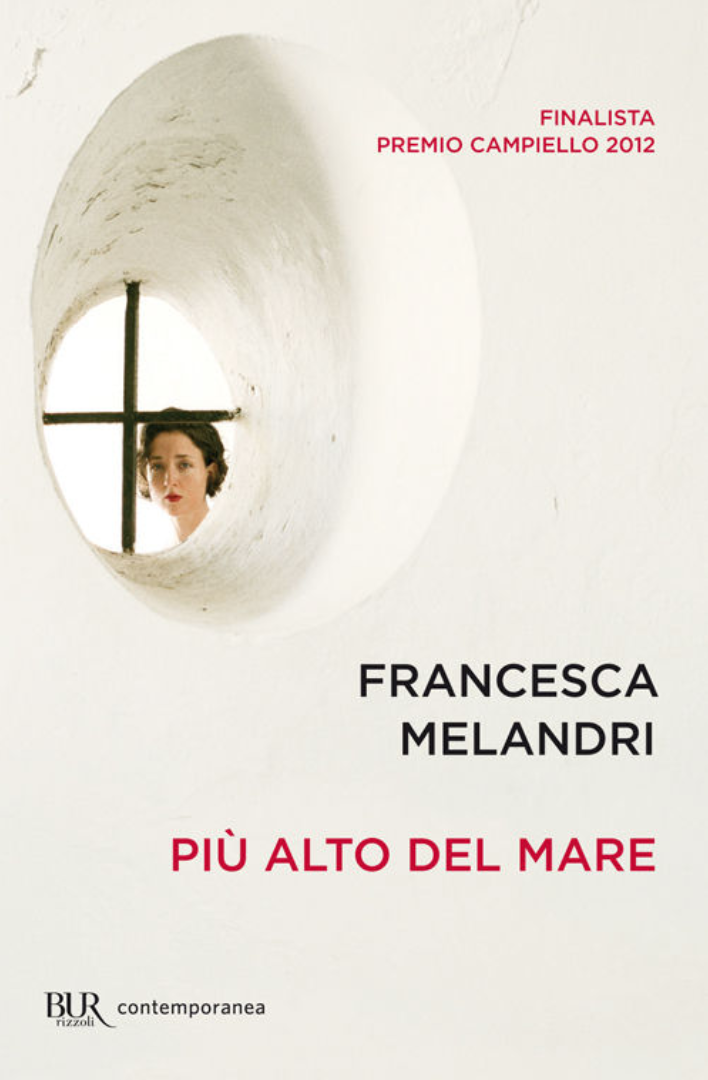Empire of Dust by Francesca Manfredi
- Lucy Rand

- Jun 13, 2019
- 3 min read
Updated: Sep 10, 2019
L’impero della polvere
La Nave di Teseo
April 2019
118 pages

Empire of Dust is the first novel by one of Italy’s most exciting new narrative voices. After graduating from the Holden School of Storytelling in Turin, where her talent was spotted by the world-renowned literary agent Andrew Wylie, Francesca Manfredi made her publishing debut with her beautifully simple yet deeply disturbing short story collection A Nice Place to Be (Un buon posto dove stare, English rights still available) in 2017, which won the Opera Prima (first book) prize in the prestigious Premio Campiello.
In the summer holidays of 1996, 12 year old Valentina has her first period, her first kiss, and experiences the devastating complications of female friendship. These three concerns would be sufficient to keep a girl occupied for the school holidays, if it weren’t for the fact that her home was in an equivalent state of chaos. Valentina is the third generation of a family of women who live in a crumbling, spooky house on the outskirts of an unnamed provincial town in Italy. Her mother is young, attractive and flighty, and her kindness towards her daughter fluctuates with her mood. La nonna, her grandmother and self-appointed, self-sufficient matriarch of the family is severe, devoutly catholic, and suspicious of outsiders. Especially if they're men.
The novel’s plot hangs on the biblical story of the Plagues of Egypt, an ostensibly incongruous choice of narrative skeleton for a contemporary coming-of-age story. However the link between the interior lives of the three females and the external supernatural forces they are bombarded by grows increasingly clear as the novel progresses, sustaining the story's tension until the last page.
It begins with Valentina’s first period, which she instinctively tries to conceal from her family, but blood seeps out uncontrollably from a crack in her bedroom wall.
‘The day the blood arrived I also learned how to hide it. I would blot it where it came out of the crack with some kitchen roll, then put it in a plastic bag under the bed. A copper halo remained on the wall, which slowly became more and more distinct, so I started locking the bedroom door every time I went out. I treated the other blood, the stuff that came from the wound between my legs, in the same way.’
Blood is the first, but the other plagues afflict the household at a relentless pace: frogs, flies, dying livestock, boils... Each of the three generations of women secretly burden the blame for these occurrences, each isolating themselves from the others and from the world outside. The last of the ten Plagues of Egypt is the death of the firstborn son. In a novel whose protagonists are all female, the end is impossible to predict.
It’s a novel about guilt and shame and hiding, and the role of maternal relationships therein. Manfredi's unaffected voice and dark plot twists that made Un buon posto dove stare so irresistible certainly live up to expectations.
‘What I didn’t know, then, was that nothing can be hidden for too long. You can choose to keep it closed up but you can’t keep it from growing. And, like any liquid, the more you compress it the more agitated it becomes, until the moment it decides to emerge on its own, and then it does so with the force of a tempest.’
Italian Reviews:
‘The narration matches the sensations. It's an excavating piece of writing, a sharpened scalpel that cuts through the flesh [...] and conceals the seductive intimacy of adolescence.’
‘With her magnetically captivating style and crisp, accurate voice, Francesca Manfredi takes us on a journey of discovering ourselves...”
Stefania Massari, Huffington Post Italia
English rights available
The Wylie Agency
Contact: Ekin Oklap
eoklap@wylieagency.co.uk
[Translations all my own]





Comments